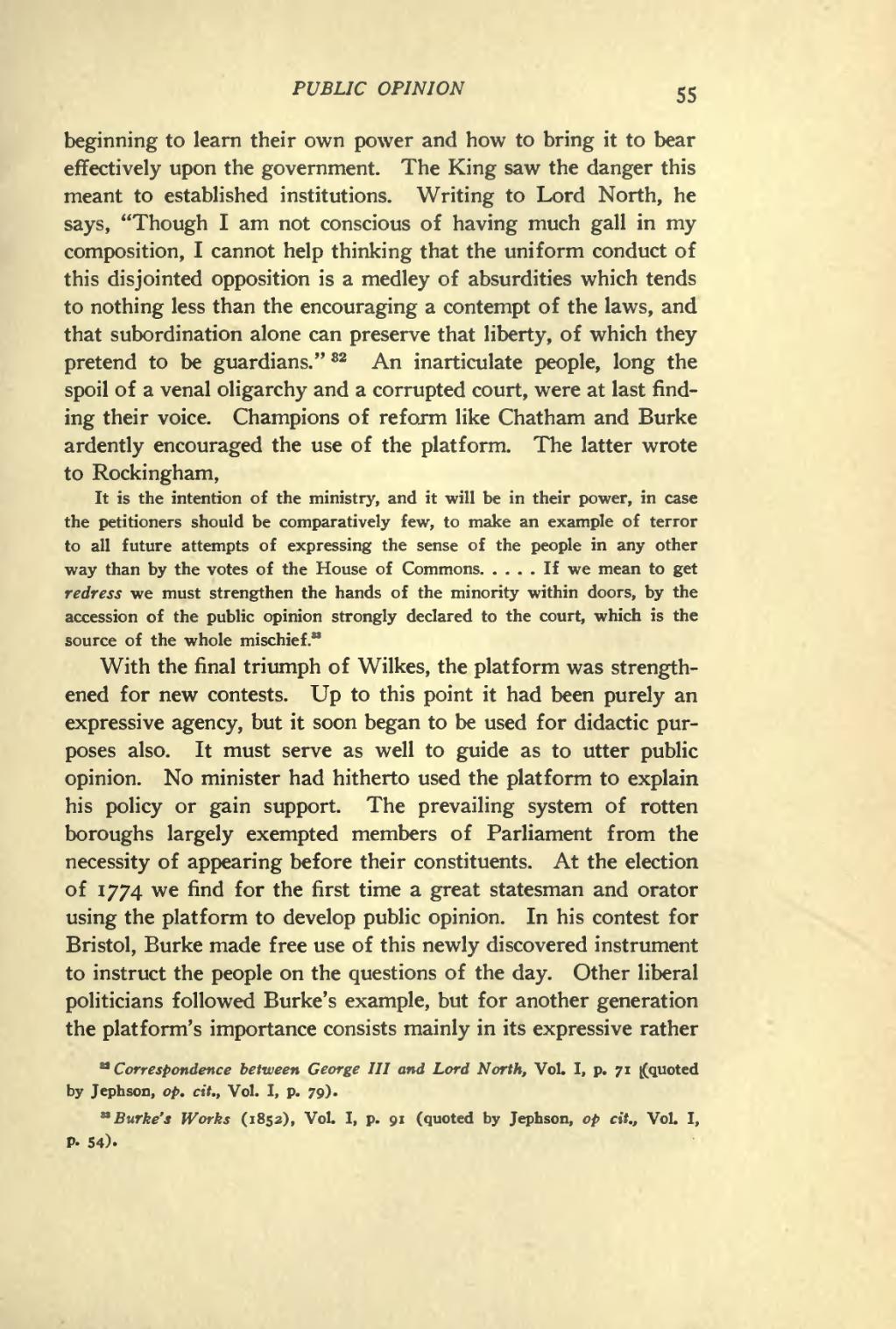PUBLIC OPINION
55
beginning to learn their own power and how to bring it to bear effectively upon the government. The King saw the danger this meant to established institutions. Writing to Lord North, he says, "Though I am not conscious of having much gall in my composition, I cannot help thinking that the uniform conduct of this disjointed opposition is a medley of absurdities which tends to nothing less than the encouraging a contempt of the laws, and that subordination alone can preserve that liberty, of which they pretend to be guardians." ^^ An inarticulate people, long the spoil of a venal oligarchy and a corrupted court, were at last find- ing their voice. Champions of reform like Chatham and Burke ardently encouraged the use of the platform. The latter wrote to Rockingham,
It is the intention of the ministry, and it will be in their power, in case the petitioners should be comparatively few, to make an example of terror to all future attempts of expressing the sense of the people in any other
way than by the votes of the House of Commons If we mean to get
redress we must strengthen the hands of the minority within doors, by the accession of the public opinion strongly declared to the court, which is the source of the whole mischief.
With the final triumph of Wilkes, the platform was strength- ened for new contests. Up to this point it had been purely an expressive agency, but it soon began to be used for didactic pur- poses also. It must serve as well to guide as to utter public opinion. No minister had hitherto used the platform to explain his policy or gain support. The prevailing system of rotten boroughs largely exempted members of Parliament from the necessity of appearing before their constituents. At the election of 1774 we find for the first time a great statesman and orator using the platform to develop public opinion. In his contest for Bristol, Burke made free use of this newly discovered instrument to instruct the people on the questions of the day. Other liberal politicians followed Burke's example, but for another generation the platform's importance consists mainly in its expressive rather
^Correspondence between George III and Lord North, Vol. I, p. 71 [(quoted by Jephson, op. cit., Vol. I, p. 79).
Burke's Works (1852), Vol. I, p. 91 (quoted by Jephson, op cit.. Vol. I, p. 54).
